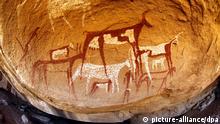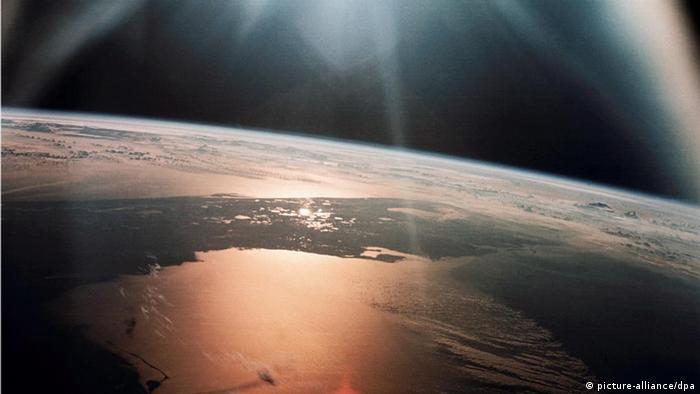Scientists are calling for the official designation of a new earth epoch: the Anthropocene. Addressing the 'Planet under Pressure' gathering in London, they say one species has left an indelible mark.
Scientists are pushing to officially change the name of the current geological epoch, as the world prepares to take stock of its 20-year record of addressing global environmental problems.
Experts say designating the arrival of the 'Anthropocene,' or age of man, would capture the nature and extent of changes on the planet, and could spark a shift in how humanity thinks of its presence on Earth.
Pointing to climate change, dwindling fish stocks, continued deforestation, rapid species decline, and human population growth, Erle Ellis, an ecologist at the University of Maryland, said the vast majority of ecosystems on the planet now reflect the presence of people.
We are already past "a human-systems tipping point" where we should be wondering whether we are in the Anthropocene or not, Ellis said.
In future, he said, the evidence for the Anthropocene will be apparent in the sedimentation record: in the rapid increase in carbon deposits, in traces of cities, and the fossils of domesticated animals.
Welcome to the Anthropocene

The Holocene has been conducive to farming
The new name would signal the passing of the Holocene, the 12,000 year stretch of history distinguished by the end of the last ice age and the relative stabilization of sea levels. Scientists hope it will also signal a psychological break.
"We are currently accelerating into a new era", said Will Steffen, head of the Climate Change Institute at the Australian National University. An era, he added, that won't be as stable as the last, which gave rise to farming and civilization.
Anthony Giddens, the British political scientist known for his holistic view of societies, described the Anthopocene as a "runaway world" in which we have unleashed processes more powerful than our attempts to control them.
The term isn't new. Since the atmospheric chemist Paul Crutzen popularized the word in 2000, the Anthropocene has increasingly come to be accepted as an unofficial tag in scientific circles.
The International Commission on Stratigraphy is considering whether to formally recognize that we have entered the new period and is expected to reach a decision in 2016.
But that may be too late for some scientists.
Sparking a shift

Paul Crutzen helped popularize the term Anthropocene in 2000
Some 2800 experts from around the world met in London this week for 'Planet under Pressure,' a conference that hopes to steer the direction of this year's Rio +20 summit – the 20-year follow-up to the Rio Earth Summit of 1992.
The experts discussed ways to break the lack of urgency in tackling global environmental problems.
According to policy documents drawn up by the conference organizers, this means looking at human wellbeing and development in a different way from simply measuring GDP.
It also means creating business models that incorporate the value of ecosystem services like crop pollination and purification of water and air: services that are not typically captured by GDP, but face pressure from economic growth.
One such effort, called Future Earth, aims to bring together environmental and social research groups under one banner.
"This isn't about moving the deck chairs on the Titanic," said Diana Liverman, expert for the Environmental Change Institute.
Future Earth, said the organizers, is about connecting scientists from different fields and at least three countries per project to investigate what kind of era the Anthropocene is going to be. It should also provide solutions for mitigating or adapting to its rougher effects.
Ecologist Erle Ellis said humans have a choice of piloting "a good Anthropocene" or "managing a series of crises."
Author: Robin Powell
Editor: Nathan Witkop
Editor: Nathan Witkop

Comments